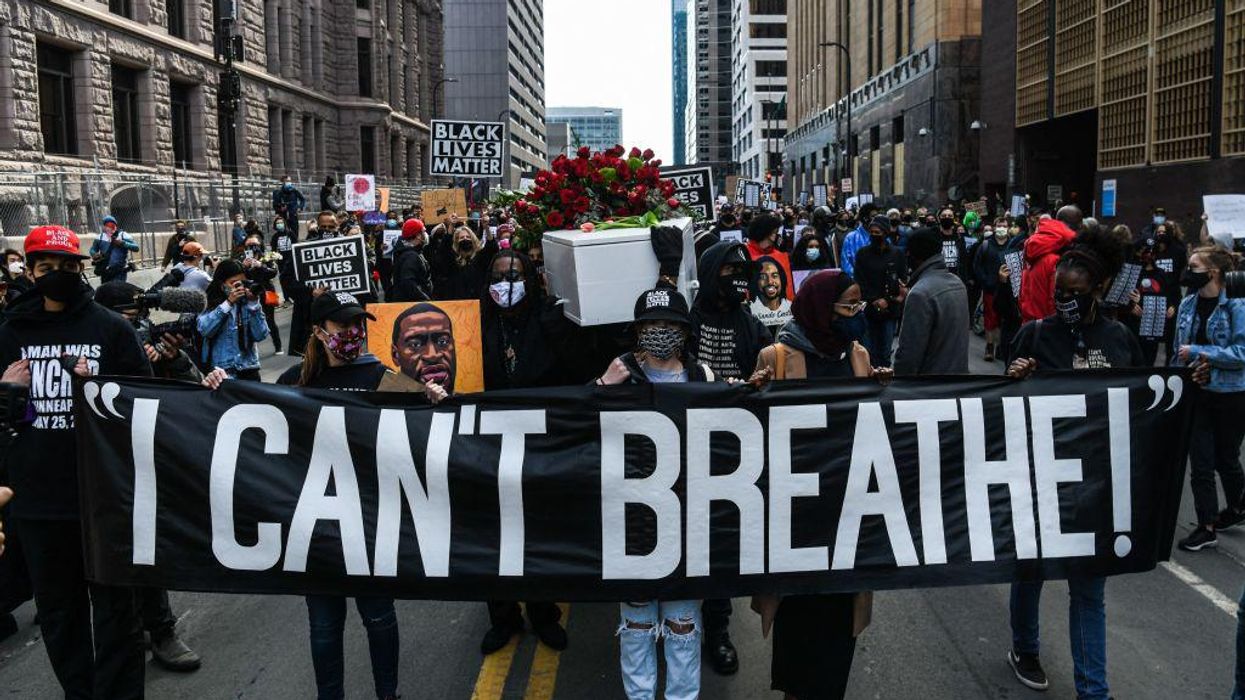
CHANDAN KHANNA/AFP via Getty Images

The verdict is in
After roughly 10 hours of deliberation, a 12-person jury considering charges of murder and manslaughter against former Minneapolis police Officer Derek Chauvin has delivered its long-awaited verdict Tuesday afternoon.
The jury of five men and seven women unanimously pronounced Chauvin guilty on all three charges of second-degree murder, third-degree murder, and second-degree manslaughter.
Following the proceedings, Chauvin was immediately taken into police custody. He now awaits sentencing from Judge Peter A. Cahill for each of the charges, which carry penalties of up to 40 years, 25 years, and 10 years in prison, respectively.
The actual sentencing, however, will likely be much lower since Chauvin has no prior convictions. Minnesota's sentencing guidelines recommend 12 years in prison for each murder charge and four years for a manslaughter charge. The prosecution is expected, however, to ask for sentencing enhancements.
While performing an arrest, Chauvin knelt on Floyd's neck for more than 9 minutes to restrain him while Floyd, suspected of using a counterfeit bill, begged for the officer to release him from the hold.
Floyd, who later died, was heard repeatedly saying in video of the incident, "Please, I can't breathe."
Of immense importance during the trial was Floyd's manner of death. Dr. Andrew Baker, the chief medical examiner who performed an autopsy on Floyd, officially determined his cause of death to be "cardiopulmonary arrest complicating law enforcement subdual, restraint, and neck compression."
But in the report, Baker added that significant conditions included "fentanyl intoxication" and "recent methamphetamine use," in addition to "Arteriosclerotic and hypertensive heart disease."
News of the Floyd's death on May 25 spread rapidly on social media and the incident immediately became a lighting rod for outrage over racial injustice and police brutality, sparking violent protests and riots across the country and around the world.
Floyd's death also reignited the Black Lives Matter movement in America and has prompted activists to call for a reckoning over alleged systemic racial oppression in the country.
The defense team is expected to appeal the convictions.
This is a developing story. Check back for updates.